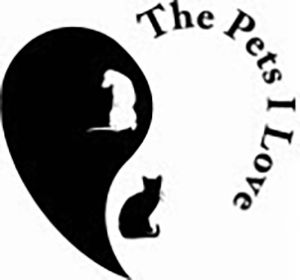Our Services
Puppy Care
We work hard to provide you with all the assistance you require since the more knowledgeable you are about your pet, the better you will be able to care for him or her.

Puppy Care
Welcoming a new puppy into your household is a special and exciting time for everyone involved. Our veterinarians and staff understand this and want to provide you with the best information and health-care to ensure a great start for your new puppy’s life. The time and energy you devote to your puppy in the beginning will set the tone for your relationship for years to come.
Maximizing Your First Visit to the Veterinarian
Some of the topics that we will cover during the first visit are:
- Vaccination Schedules
- Spaying or Neutering
- Basic Obedience Training
- Housebreaking
- Appropriate Puppy Diets
- Flea, Tick & Heartworm Preventative
- Symptoms of Illness
Although most of these considerations and recommendations apply to all puppies, our veterinarians will take into account your puppy’s breed, age, your lifestyle, and any existing health or behavioral issues to provide personalized recommendations.
The Importance of Quality Puppy Food and Proper Training
It is recommended that puppies weighing more than 50 pounds at adulthood eat large breed puppy food, and that puppies eat puppy food until they reach one year of age. Always make sure your puppy has access to plenty of fresh water. Having a regular feeding and walking schedule will assist in potty training and help your puppy learn to enjoy a structured routine. Our veterinarians will offer personalized feeding advice during your puppy exam.
It is best not to share food from your plate with your puppy, as it can lead to poor eating habits. Instead, stick to a good puppy diet and follow a feeding routine. Early training on how to behave while you are eating is also beneficial.
Puppy potty training should begin right away, and it is essential to remain patient and calm during this process. Take your puppy outside frequently, and reward good behavior with immediate praise. Crate training is a humane way to confine the puppy in a small area when not being watched, which can decrease potty accidents and destructive behavior.
Common times to take your puppy outside to go potty include after every meal, after drinking water, after waking up from a nap, after playing/exercising and right before bedtime.
Once your puppy begins vaccinations, he or she is ready to begin puppy classes with other vaccinated puppies. Puppy classes should begin at 8 weeks of age and continue through basic training.
Signs Of Illness in Puppies
Puppies are more susceptible to health problems than adult dogs due to their immature immune system. We know no pet parent wants to think about their precious pup feeling poorly.
These symptoms all indicate urgent situations and require immediate veterinary care.
- Loss of appetite
- Vomiting
- Diarrhea
- Lethargy
- Coughing
- Nasal discharge
Puppy Vaccinations
Puppy vaccinations typically start at the age of 6-8 weeks. Vaccines must be given as a series of timely injections, but the recommended vaccines and schedule of injections may vary depending on your puppy’s individual needs. It is important to follow your veterinarian’s recommended vaccine schedule to ensure that your puppy receives proper protection. Our veterinarians will offer personalized advice during your puppy exam for your happy, healthy and growing dog.
Understanding Puppy Teething: A Guide to Helping Your Furry Friend
It is important to provide age-appropriate puppy teething devices and toys for your puppy during this time and also to gently but assertively reinforce that nips and bites to people, property, and other animals are not okay. If you do have other animals present for the puppy teething period in your home, they will do a good job of being assertive too. Just be sure to monitor play between animals to ensure that an innocent puppy teething incident does not escalate into something more serious.
Why Should I Spay or Neuter My Dog?
Spaying vs Neutering: What is the difference?
The procedures may also be referred to as being “fixed”. Whether male or female, both procedures sterilize your dog so they cannot have puppies and may also prevent certain diseases and health conditions later in life.
Neutering in Dogs
Neutering is the common term used to describe the surgical procedure also known as orchidectomy. A veterinarian performs this surgical procedure, both testicles are removed in order to sterilize a male dog. In general, complications are rare during a neuter procedure. However, as with any anesthetic or surgical procedure, there is always a small risk. Pre-operative blood work is a useful screening test that may detect pre-existing problems that could interfere with the pet’s ability to handle anesthetic drugs. There are different determining factors for the optimal time to neuter a puppy, including the health, behavioral, and environmental factors. Talk to your Pets I Love veterinarian to determine the best time to neuter your dog.
Benefits of Neutering Dogs
- Risk of testicular cancer is eliminated
- Reduces the risk of disease benign prostatic hyperplasia (enlarged prostate that comes with age) and prostatitis (prostate infection)
- Reduces certain types of aggression
Spaying in Dogs
Spaying is the common term used to describe the surgical procedure known as an ovariohysterectomy. A veterinarian performs this surgical procedure, the ovaries and uterus are removed completely in order to sterilize a female dog. In general, complications are rare during a spay procedure. However, as with any anesthetic or surgical procedure, there is always a small risk. Pre-operative blood work is a useful screening test that may detect pre-existing problems that could interfere with the pet’s ability to handle anesthetic drugs. There are different determining factors for the optimal time to spaying a puppy, including the health, behavioral, and environmental factors. Talk to your Pets I Love veterinarian to determine the best time to spay your dog.
Benefits of Spaying Dogs
- Risk of ovarian and uterine cancers is eliminated
- Unspayed female dog also carry the risk of developing pyometra – a fatal condition of the uterus that requires surgery to treat
- More than a quarter of unspayed female dogs will develop a mammary tumor (breast cancer) during their lifetime
Socializing Your Puppy
We would love to meet your new puppy! Our team is here to help make your visit to the vet as fear free as possible!
